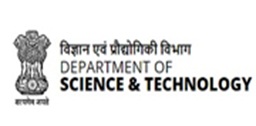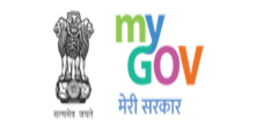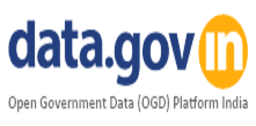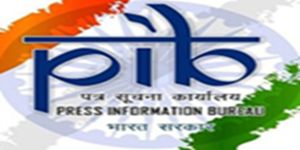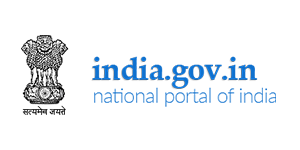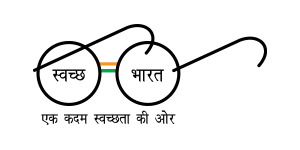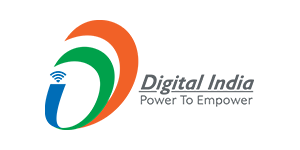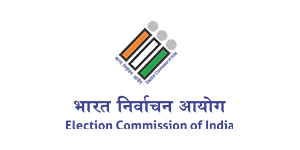This is a document that invites project proposals from interested parties in accordance with the details of substance and procedures of a scheme that has been prepared by NECTAR for implementation in furtherance of its objects and prescribed mandate. The proposals are required to be submitted as per the prescribed format along with supporting testimonials, certificates and documents that have been listed in the main body of the RFP document.
Introduction
The North East Centre for Technology Application and Reach (NECTAR) has been set up as an autonomous body under the Department of Science & Technology. NECTAR has been constituted as a society and is headquartered at Shillong, Meghalaya.
The primary aim of NECTAR, as per its Memorandum of Association is:
NECTAR would promote deployment of carefully selected technologies, emanating from the public funded research institutions under the Government of India and State Governments, in consultation with the respective State Governments, after assessing their application potentials.
The Institution is sought to be designed in terms of the following expectations:
- Differentiated Approach from Technology Development Organizations
- The Role Of Solution Designer
- NECTAR as a partnership institution
- Technology Assistance to the state Government in North Eastern Region
- Assistance to State Government in Technology Assisted Decision Support Systems
- Focus on Technology Reach Function
NECTAR has accordingly defined its vision and Mission in the following terms:
The Vision:
To be the leading Centre to foster, nurture and ensure the delivery, sustenance and use of technology applications for public and social good; and to reach and expand the benefits of technology among people, communities, institutions and governments for equitable and inclusive social and economic development of the North Eastern Region of our country.
The Mission:
NECTAR is conceived as a collaborative center of excellence to resolve the last mile problem in the delivery, induction, management, use and extension of technology applications which serve public good and promote social and economic development of the North Eastern region in the broadest possible terms. The overall operational aim is to infuse, build and sustain a culture of gainful applications of technology at the ground level among users and to fill the void that persists at present in reaching to people, communities and end users technology applications that remain unavailable to them. The focus and emphasis of technology induction and extension is clearly on applications that serve public good; that create livelihoods and employment, particularly among the poor and disadvantaged communities; that promote equitable economic growth; improve productivity in all areas; promote efficient and effective use of local and natural resources; contribute to safety and a cleaner environment and are socially desirable.
The Centre is committed to mitigate and fill the vital gaps in the techno-economic interface and establish and deliver expertise and services in the following areas particularly: technology solutions design for the issues and problems relevant to the North Eastern Region; sourcing of the most appropriate and optimal technology application; adaptation and adoption of the technology for local and effective use; demonstration of the applications through pilot projects; skills and capacity building among users and institutions to absorb and use the applications; induction of the applications and promoting entrepreneurial adoption; the extension and consolidation of the promoted technologies; delivery, maintenance and servicing of applications by promotion of an appropriate delivery and services infrastructure.
The Centre has chosen to work in a collaborative, networked and partnership framework. The endeavor will be to build and expand partnerships with people, communities, local bodies, NGO , research and technology institutions, knowledge creators, professionals and experts, intermediate entities of all types working towards similar aims and, most importantly, with the various organs of the State Governments. The projects, schemes, funding and support of the Centre will be channeled in accordance with this model and framework. The Centre recognizes that their clients and stakeholders are bound to them in a partnership mode.
Thus, the Centre, besides employing its own expertise and resources, will continually strive to engage and participate with a diverse and dispersed range of project partners and collaborators. The Centre will take active steps to invite and encourage the participation and contribution, both individual and institutional, of the potential and talents of the North Eastern Region.
The Centre is acutely aware that the induction and economic use of technology applications is not a technology question alone. It comprises the entire gamut of interlocked chains of production and business which begins with the raw material or a knowledge resource and reaches right to the point where the end product is used or consumed by the citizen or consumer. The centre shall undertake all activities which require technology and management inputs that serve to strengthen the economy of the North Eastern Region and create incomes and livelihoods for the poor and disadvantaged people of the Region.
Technology Outreach and Services Scheme (TOSS): Conceptual Framework
TOSS is an umbrella scheme of NECTAR to establish linkages with individuals and institutions to deliver technology solutions to the NE Region which have clear potential to generate social or economic growth in the region and create opportunities for people to better their lives by value addition and sales of products and services that can be organized and made using the local natural and human resources. And further focus on activities and schemes that create income and livelihoods for the people of the NE region, especially the poor and the disadvantaged communities. The proposed linkages may take various forms such as services and contractual agreements, alliances and partnerships. TOSS is a structured mechanism to achieve the goals as set out in the Action Plan. The components and schemata, and the principles that underline the Action plan are narrated in the next paragraphs:
1. Technology Consultation Projects :
NECTAR shall consult with the State Governments and all its stakeholders to identify and prioritise problem areas and technology gaps. These will be studied and assessed for optimal solutions. Thus the Centre shall take up the Role of a Technology Solutions Designer.
Activities:
- Identification of problems/gaps
- Technology assessment studies
- Solutions Design
- Sourcing of optimal technologies from publicly funded research & technology organisations, and elsewhere.
2. Technology Demonstration and Induction
Once a viable solution is reached, the next step is the effective demonstration of the technology for its induction. This gives the space for removal of practical glitches, testing in real situations, and confidence building among the clients, users and stakeholders. This activity usually takes the form of pilot projects and plants and the process of transfer of skills to the user.
3. Technology Extension and Consolidation
A viable technology which is successfully demonstrated across the Region then needs to be extended and disseminated for purposes of consolidation and in assuming its assured place in the techno-industrial sphere at the appropriate scale. This is a crucial function and involves promotion of management inputs in a variety of areas that constitute the industrial/production cycle.
4. Technology Delivery and Services:
A technology culture in particular areas or sectors has to be continually renewed and improved, taking into account changes in the relevant factors: technology itself, economic conditions, specific bottlenecks, competing products and technologies etc. Of crucial importance is the issue of technology management, a reliable delivery and services infrastructure and maintenance of the technology assets promoted under the Centre’s aegis. NECTAR shall partner with community groups and institutions both in the public and private sector to ensure that there is no let up or gap in these services and they are continually renewed and improved.
Activities:-
- Technology delivery and services infrastructure
- Technology assets maintenance and services
- NECTAR technology delivery and services centre in each State of the NE Region.
- Capacity building and skills training
- Product and process improvement support
- Management support.
1 .Technology Assistance to State Government
NECTAR shall utilize its own expertise and resources and partner with other institutions to provide technology assistance to State Governments especially in areas that create income and employment opportunities for the people in the NE Region.
2. Assistance to State Governments in Technology Assisted Decision Support Systems.
NECTAR shall endeavour to provide assistance in the following areas:
- Technology tools for social and economic planning
- Tools for efficient land use and natural resources management.
- Technology platforms for delivery of social and public services.
- Capacity building among the human resources in the government for efficient and effective technology use.
The above listing of activities and programmes is indicative and will doubtless undergo changes and refinement as the centre acquires more experience, expertise and knowledge of the NE Region over time.
Two points should however be highlighted:
- In the consideration of any technology related activity or program to be taken up by NECTAR, the litmus test is the following: Whether the activity benefits social or economic growth in the region and creates opportunities for people to better their lives by value addition and sales of products and services that can be organized and made using the local natural and human resources.
- NECTAR shall strive to focus on activities and schemes that create income and livelihoods for the people of the NE region, especially the poor and the disadvantaged communities
Sectors and Areas
Based on the current understanding of the technology issues in the NE Region and the in house expertise within NECTAR, the following sectors and areas will be accorded priority in the activities and programmes of the Centre:
- Agriculture and Agri-business
- Horticulture
- Projects that focus on sustainable use of the rich biodiversity of the Region.
- Bamboo related Applications
- Land use and natural resources management
- GIS Applications
- IT and communication tools, products and technologies
- Technology products for improving safety and security.
- Wireless communication systems and MESHNETS.
- Technology Applications in Health, Education and Sanitation.
- Monitoring tools for social sector schemes and programmes of the Government.
- Green and Clean technologies, especially those with potential to earn carbon credits and create carbon sinks.
- Off grid and community based clean and alternative energy solutions.
- Technology upgradation support to enterprises
- Product improvement support to enterprises
- Market expansion applications and support
- Support for technology innovation, incubation and start ups
- Drinking water and small irrigation technologies
- E-applications and rural technologies
- Crafts, handlooms, silk, weaving and design
Many of these interventions shall be delivered by partnering with self-help groups and communities.
PART B: Request for Proposals
Project proposals are invited from innovative, capable and interested persons under TOSS. The various descriptions and conditions are stated in the succeeding paragraphs.
Who can apply
Proposals can be submitted by:
- Individuals or groups of individuals
- Firms, companies
- Non-governmental organisations registered as societies or Section 25 companies
- Government entities
When to apply
This is a standing scheme which is open throughout the year(s). Proposals can be submitted at any time.
TOSS Components
NECTAR envisages the technology delivery and outreach services as a four step process. It also recognizes that technology can be both a product as well as a process:
Technology Consultation
This rubric or step includes the following types of activities. The list is neither exhaustive nor exclusive.
- Identification of gaps or problems
- Assessment studies
- Solutions design
- Sourcing technologies
Technology Demonstration and Induction
- Pilot installations
- Demonstration installations
- Awareness and capacity building
- Transfer of skills and training
- Tooling facilities
Technology Extension and Consolidation
- Skills training
- Promoting entrepreneursFinancial and Technology Assistance to entrepreneurs
- Pooling of facilities and common facilities centres
- Product and process improvement
- Marketing and sales support activities
Technology Delivery and Services
- Technology management support services
- Maintenance of technology assets
- Maintenance services
- Delivery and services infrastructure
- Competition related services and technology enhancement support
Proposals may include any activities under one or more of the four step process outlined above.
Submission of proposals
Project Proposals shall be submitted by interested parties using the format as supplied in the Annexure (Annexure I).
Decision making process
1. It has been stated that project proposals under TOSS may be submitted at anytime to NECTAR at its office. NECTAR shall constitute a standing “Technology Evaluation Committee” for purposes for evaluation of the project proposals. Separate TEC’s may be set-up in different sectors/ areas. The TEC shall comprise experts and officers of NECTAR.
2. The scrutiny and evaluation of the proposals shall take place on the basis of a set of parameters which would be adopted by the TEC. The parameters would include :
- The relevance of the technology in terms of the mandate and mission of NECTAR.
- The scope and objectives of the project.
- The innovative components of the project
- The potential of the technology/activity in terms of replication and impact on the sector
- The quality and strength of the proposed deliverables and outcomes.
- The potential of the project in terms of income generation, livelihoods and socio-economic benefits.
- Qualifications and experience of the proposers/ applicants.
3. The TEC shall adopt a threshold technical criteria by means of a marks allocation mechanism to each of the technical parameters. Only those proposals that meet the threshold technical criteria shall be shortlisted for further consideration.
4. The proposals of the shortlisted applications shall then be considered also taking into account the details of costs, the funding elements and the assistance sought from NECTAR. In order to arrive at a final ranking of the proposal, the weightage between the technical proposal and financial proposal shall be assigned in the ratio of 65% and 35% respectively. The financial proposal shall be evaluated on the basis of the following three parameters :
- Costs of the project
- Financial assistance sought
- Nature of association proposed and possible.
5. Accordingly, a final ranking shall be assigned, and thereafter, the selected applicants shall be invited for consultation for purposes of finalising the terms and details of the agreements or contracts.
6. The TEC shall meet at regular intervals for consideration of all outstanding proposals.
Last Updated : 03-07-2025 - 14:29





